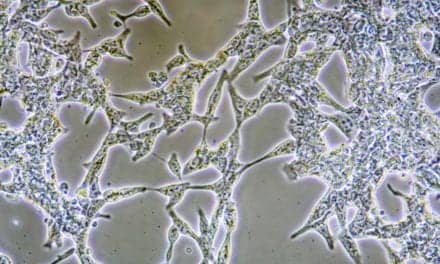Exact Sciences Corp., a global provider of cancer diagnostics, has announced the publication of results underscoring the importance of adverse pathology as a reliable and critical endpoint for risk-assessment in clinically low-risk prostate cancer patients.1 Published in Urologic Oncology: Seminars and Original Investigations and led by study collaborators at the Cleveland Clinic, the findings showed that men who were discovered to have adverse pathology, following a radical prostatectomy, were 10 times more likely to develop metastatic disease and eight times more likely to die from their prostate cancer than those with favorable pathology, up to a 20-year follow up.1 The findings strongly support the clinical use of the Oncotype DX Genomic Prostate Score (GPS) test, a commercial genomic assay for prostate cancer that was specifically developed to improve assessment of a patient’s risk of adverse pathology, beyond clinical factors alone, and optimized to perform in biopsy samples. 2,3
“The critical clinical question urologists ask when treating their low-risk prostate cancer patients is whether active surveillance may be appropriate or if they may be harboring more aggressive disease that needs to be treated immediately,” says Eric Klein, MD, chairman of the Glickman Urological and Kidney Institute at Cleveland Clinic. “These findings are important as they establish adverse pathology at radical prostatectomy as a strong prognostic factor for long-term prostate cancer outcomes and demonstrate the value of AP for assessing risk in this low-risk population, ultimately providing confidence when deciding between active surveillance or other immediate treatment strategies.”
In the study, analyses were performed on a sample of 428 patients, largely clinically low and intermediate risk (10% being clinically high risk), treated with radical prostatectomy (RP) between 1987 and 2004. Adverse pathology was defined as either high-grade or high-stage disease (Gleason Grade 3 or above and/or non-organ confined disease, pT3 or higher). Patients with no AP at surgery had a nearly zero risk of metastasis and death even at 20 years, while metastatic and death events rose immediately and sharply in the group of patients who had adverse pathology.
“We developed the GPS test to fundamentally change how risk assessment at the time of biopsy for prostate cancer patients could be improved with genomics, and we chose adverse pathology as the actionable endpoint in all of our validation studies,” says Rick Baehner, MD, chief medical officer of Precision Oncology at Exact Sciences. “These study results show that the combined risk of adverse pathology is strongly associated with worse long-term outcomes, supporting the clinical utility of the Oncotype DX GPS test and the many patients who have put their trust in the GPS test to confidently manage their treatment decisions.”
The genomic assay for prostate cancer, the Oncotype DX GPS test is backed by a robust body of clinical evidence in more than 9,000 men4 and Exact Sciences says it is committed to further strengthening the data supporting the expanded clinical utility of the test. Recently, the company has redesigned its patient test reports to reflect new clinical evidence and to answer the different clinical needs in low- and high-risk patients. With two tailored reports, the Oncotype DX GPS assay provides critical information for when active surveillance may be an appropriate decision in lower-risk patients and provides risk estimates to help inform treatment decisions for higher risk patients.4 The patient-friendly resources help facilitate discussions between patients and their healthcare practitioners by consolidating key prostate cancer characteristics in a single document for ease of reference during treatment management conversations. The new high-risk reports are currently available, and the new low-risk reports will launch December 2021.
For more information about the Oncotype DX Genomic Prostate Score test and to view samples of the new patient test reports, visit Exact Sciences Corp.
References
- Brooks et al. Urologic Oncology: Seminars and Original Investigations. 2021.
- Klein et al. European Urology. 2014
- Cullen et al. European Urology. 2015
- Data on file





